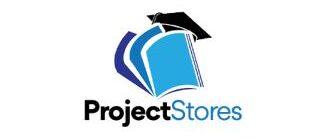ABSTRACT
INFLUENCE OF SCHOOL ENVIRONMENT ON THE ACADEMICS PERFORMANCE OF SECONDARY SCHOOL STUDENTS IN LAGOS STATE: This paper examines the factors affecting the learning and teaching of accounting education in Lagos State University. The study was conducted using a survey with a sampling population of 400 undergraduates from 200-level to 400-level students of accounting education.
It has been discovered that the factors affecting the learning and teaching of accounting education are numerous but they can be grouped into school environment factor, instructional material factor, teaching method factor, and home related factor.
The findings indicate that personal and job factors such as students’ interest and motivation in the subject, job prospects and high pay, and performance in secondary school are the most influencing factors in students’ choice of accounting. In particular, male students were found to be more influenced by the reference factors than their female counterparts in the choice of accounting. The paper recommends the need for enlightenment and counseling of the students and their wards about career choices in accounting.
Keywords: Teaching methods, personal factors, teaching and learning
TABLE OF CONTENTS
Pages
Title Pages i
Certification ii
Dedication iii
Acknowledgement iv
Abstract v
Table of Contents vi
CHAPTER ONE: INTRODUCTION
1.1 Background to the Study 1
1.2 Statement of the Problem 3
1.3 Purpose of the Study 3
1.4 Research Question 4
1.5 Research Hypotheses 4
1.6 Significance of the Study 4
1.7 Scope of the Study 5
1.8 Limitations on the Study 5
1.9 Definition of Terms 5
1.10 Organization of the Study 6
CHAPTER TWO: LITERATURE REVIEW
2.1 Introduction 8
2.2 Overview of Career Choice 10
2.3 Concept of Career and Career Choice 12
2.4 Career Choice and Development Theory 14
2.5 Empirical Studies on Career Choice 19
2.6 Career Development Process 22
2.7 Parental Influence on Career Choice 26
2.8 Summary of Literature Review 35
CHAPTER THREE: RESEARCH METHODOLOGY
3.1 Introduction 37
3.2 Research Design 37
3.3 Population of the Study 37
3.4 Sample and Sampling Procedure 37
3.5 Method of Data Collection 38
3.6 Research Instrument 38
3.7 Administration of the Instrument 39
3.8 Validity of the Instrument 39
3.9 Reliability of Instrument 39
3.10 Method of Data Analysis 39
CHAPTER FOUR: DATA ANALYSIS AND PRESENTATION OF RESULTS
4.1 Socio-Demographic Characteristics of Respondents 41
4.2 respondent’s Perception on Motivational Factors affecting the Choice of Career for Secondary School Students in Lagos State. 45
4.3 Testing of Hypotheses 50
CHAPTER FIVE: SUMMARY, CONCLUSION AND RECOMMENDATIONS
- Summary 56
5.2 Conclusion 57
5.3 Recommendations 57
References 59
Questionnaire 61
CHAPTER ONE
INTRODUCTION INFLUENCE OF SCHOOL ENVIRONMENT ON THE ACADEMICS PERFORMANCE
1.1 Background to the Study
Career choice is a complex decision for students since it determines the kind of profession that they intend to pursue in life. As students try to make career choice while in secondary school, they face problem of matching their career choices with their abilities and school performance. Also, Career choice has become a complex science with the advent of information technology, the emergence of the post-industrial revolution, and job competition. Industrialization and post-industrialization has made it possible for a common person to be richer as long as she or he has due skills and knowledge (Wattles, 2009).
Today, one has not only to make due career planning but also exhaustive career research before making a career choice so as to adjust to the evolving socio-economic conditions (Wattles, 2009). Most students in secondary schools do not have accurate information about occupational opportunities to help them make appropriate career choices.
According to Kerka (2000), career choice is influenced by multiple factors including personality, interests, self-concept, cultural identity, globalization, socialization, role model, social support and available resources such as information and financial incentives are among the various motivational factors that influence student’s career choice. The effort taking by the researcher in finding out these motivational factors will go a long way in giving parents, educators, and industry an idea as to where students place most of their trust in the area of career selection process.
Several factors affect the career choices of secondary school students, these factors range from parental influence, environment, peer group, culture, interest, likes and abilities of the students, also available information about jobs and occupations. It has been observed that students have strong inclination to do the bidding of their parent. Parents may therefore use this avenue to propose or suggest a career choice to them. Furthermore, high-ranking professions such as law, medicine, accountancy and teaching may influence the choice of career of secondary school students not just because of its general acceptability, popularity or huge financial benefits/societal status but also because of the level of success of these practitioners in their respective fields. Students aspire to career opportunities in these professions irrespective of their interests or abilities.
Thus, this study stresses the need for career guidance and counseling in secondary schools. It is poised to look into those motivational factors that affect the choice of career of secondary school students.
However, motivation been a major factor/determinant of student’s career choice selection is a necessary ingredient in fostering proper attitude in the students, thereby causing positive outcome in the students and high performance. The success/outcome of any student after school depends amongst others on adequate motivational factors necessary for improving the learning process of the student’s whose learning activities is enhanced as a result of these motivations.
1.2 Statement of the Problem on The Influence Of School Environment On The Academic Performance Of Secondary Students
This research work seeks to examine the motivational factors affecting the choice of career for secondary school students. The problems would be addressed by looking at the following problem statements:
- The problems/difficulty encountered by students in secondary schools in making career decision.
- The significant relationship between career guidance and career choice among secondary school students.
- And finally, the impact of guidance counselors on students’ career choices and output.
1.3 Purpose of the Study
The purpose of this research work therefore, would be to examine motivational factors affecting the choice of career of secondary school students. Also, the study seeks to:
- Investigate the problems/difficulties encountered by students in secondary schools in making career decision.
- Examine the influence of school guidance/counselors on student’s career choice and output.
- Find out the significant relationship between career guidance and career choice among secondary school students.
1.4 Research Questions on The Influence Of School Environment On The Academic Performance of Secondary Students
For the purpose of this study, the following research questions have been formulated:
- What influence does student interest have on career choice among secondary school students?
- Does parental influence have an impact on secondary school student’s career choices?
- Is there any significant relationship between career guidance and career choice among secondary school students?
1.5 Research Hypotheses
For the purpose of this research work the following hypotheses were formulated:
Ho1: Student interest has no influence on career choice among secondary school students.
Ho2: Parental influence has no impact on secondary school student’s career choices.
Ho3: There is no significant relationship between career guidance and career choice among secondary school students
1.6 Significance of the Study
It is hoped that the findings of this study will help students in planning adequately and making right decisions as regards career choice.
The study will go a long way in bringing to bear the importance of appropriate motivational factors such as a conducive learning environment, student’s abilities or talents, and parent occupation amongst others in enabling students to make the right career choice.
Furthermore, this study will serve as in-depth material for career counselors, school administrators and the government in providing adequate guidance on choice of career through appropriate motivation methods such as creating a career-friendly and enabling environment.
1.7 Scope of the Study
This study covers an investigation on motivation factors affecting the choice of career for secondary school students. The study is limited to six (6) selected secondary schools in Alimosho Local Government.
1.8 Limitations of the Study
The limitation of this research work will be the dearth of related literature in the field of the subject matter, finances, and time constraints. Secrecy and confidentiality is another limiting factor, this is a situation where those interviewed are unwilling to release information they consider highly confidential which will be of great assistance to the research work.
1.9 Definition of Terms
Career: is the sequence and variety of occupations (paid and unpaid) that one undertakes throughout a lifetime. More broadly, ‘career’ includes life roles, leisure activities, learning, and work.
Career Choice: The broad opportunities that exist for life-long vocations.
Career Guidance: is an inclusive term that has been used to describe a range of interventions including career education and counseling, that help people to move from a general understanding of life and work to a specific understanding of the realistic life, learning, and work options that are open to them.
Motivation: Forces acting on or within a person causing initiation of behavior, or what it is that moves us. In this study, we will deal with the issues that help or hinder students in making career choices.
Students: Secondary school students are often regarded as In-school adolescents who are under the guidance of their parents and the school.
Quality of Life: The depth in the content of richness and fullness in our day-to-day existence. This includes observed and unobserved criteria that contribute to the fulfillment of our expectations and aspirations.
Decision Making: is a complicated process that involves information search and processing to understand available options.
Vocation: is a term for an occupation to which a person is especially drawn or for which they are suited, trained or qualified
Counselling: is a process that focuses on enhancing the psychological well-being of the client, such that the client is then able to reach their full potential.
1.10 Organization of the Study
This research study consists of five chapters;
Chapter one centers on the introduction, background to the study, statement of the problem, objectives of the study, research questions and hypotheses, significance of the study, scope and limitation of the study, and definition of terms.
Chapter two will consist of a review of related literature in the area relevant to this research work.
Chapter three will focus on the research methodology used in carrying out the research of the study.
Chapter four, will focus on detailed analysis and interpretation of the analysis presented.
Chapter five will draw a conclusion on the subject matter. It comprises the summary, recommendation and conclusion of this research work.


Be the first to comment